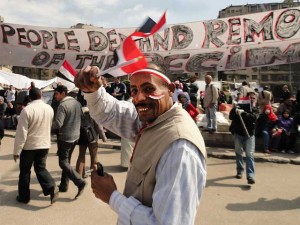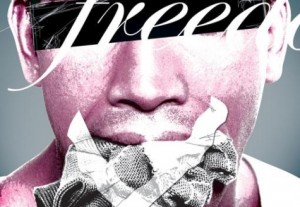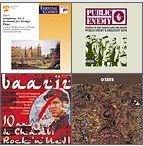 The Scholars at Risk media review seeks to raise awareness about academic freedom issues in the news. Subscription information and archived media reviews are available here. The views and opinions expressed in these articles are not necessarily those of Scholars at Risk.
The Scholars at Risk media review seeks to raise awareness about academic freedom issues in the news. Subscription information and archived media reviews are available here. The views and opinions expressed in these articles are not necessarily those of Scholars at Risk.
Censorship or a Mirage?
Steve Kolowich, Inside Higher Ed, 3/4
The man from Kyrgyzstan
Corydon Ireland, Harvard Gazette, 3/3
‘Suspect’ Offa letter threatens sector’s freedom
Rebecca Attwood, Times Higher Education, 3/3
Academic Freedom and the Corporate University
Bill Gleason, The Chronicle of Higher Education, 3/3
Continue reading
Category Archives: Activism
Academic Freedom Media Review, February 19-25, 2011
 The Scholars at Risk media review seeks to raise awareness about academic freedom issues in the news. Subscription information and archived media reviews are available here. The views and opinions expressed in these articles are not necessarily those of Scholars at Risk.
The Scholars at Risk media review seeks to raise awareness about academic freedom issues in the news. Subscription information and archived media reviews are available here. The views and opinions expressed in these articles are not necessarily those of Scholars at Risk.
YEMEN: Student protests gather strength after deaths
Ahmed Mohamoud Elmi, University World News, 2/25
Anti-Union Bill Passes Wisconsin Assembly
The Chronicle of Higher Education, 2/25
Saudi Intellectuals Demand Reforms
The New York Times, 2/24
Continue reading
Revolution in the Arab World: Why We Can't Just Stand Aside
It is amazing and inspiring to watch these demonstrations! It has been horrifying and shocking to watch the response of the Libyan regime!
It is considered naive to suggest that foreign policy should be based on principle. We are told it is necessary to be Machiavellian in safeguarding our national interest, and in the realm of foreign policy, realpolitik often trumps principle. I disagree. Perhaps I am, indeed, naive, but I believe that democracy, with protection for the rights of the minorities, is a principle that trumps almost all, and our policy ought to reflect that.
In the current wave of peaceful democratic revolutions sweeping the Arab world, US support of the citizen demonstrators has been slow and tepid. This in spite of the fact that sticking to our principles and unequivocally supporting the pro-democracy demonstrators is what is in our best economic and strategic interest. To do otherwise is a risky strategy, a strategy that, should it not go the way proponents believe, will have grave consequences.
Continue reading
Academic Freedom Media Review, February 12-18, 2011
 The Scholars at Risk media review seeks to raise awareness about academic freedom issues in the news. Subscription information and archived media reviews are available here. The views and opinions expressed in these articles are not necessarily those of Scholars at Risk.
The Scholars at Risk media review seeks to raise awareness about academic freedom issues in the news. Subscription information and archived media reviews are available here. The views and opinions expressed in these articles are not necessarily those of Scholars at Risk.
AAUP Proposes New Protections for Politically Controversial Academics
Peter Schmidt, The Chronicle of Higher Education, 2/18
Allow extremist speech in universities, report advises
Jeevan Vasagar, The Guardian, 2/18
Protests Over Anti-Union Moves in Wisconsin and Ohio
Inside Higher Ed, 2/18
In Puerto Rico, Protests End Short Peace at University
Tamar Lewin, The New York Times, 2/17
Continue reading
Academic Freedom Media Review, February 5 – 11, 2011
 The Scholars at Risk media review seeks to raise awareness about academic freedom issues in the news. Subscription information and archived media reviews are available at here. The views and opinions expressed in these articles are not necessarily those of Scholars at Risk.
The Scholars at Risk media review seeks to raise awareness about academic freedom issues in the news. Subscription information and archived media reviews are available at here. The views and opinions expressed in these articles are not necessarily those of Scholars at Risk.
Universities must safeguard intellectual vitality
Andreas Hess, Irish Times, 2/10
Presidential duress: fears for Belarusian academic freedom
Colin Graham, Times Higher Education, 2/10
Travel Ban Extends to Family
Mihray Abdilim and Joshua Lipes, Radio Free Asia, 2/10
Faculty Group at U. of Puerto Rico Joins Students on Strike
The Chronicle of Higher Education, 2/10
The Beck-Piven Controversy
Peter Wood, The Chronicle of Higher Education, 2/10
Continue reading
Egypt Decides! Let's Stand Back for a While

Saturday, 12 February 2011, Day 1 Freedom - Victory Tahrir Square, Photo by Darla Hueske, Creative Commons license, Some rights reserved
Fortunately, this wave has not caused the death and destruction tidal waves usually do, because it is the people themselves who are the wave, and it is the elite who are being swept away, not in a bloody coup, but through real people power. Final costs have yet to be assessed. People were jailed and others killed, but violence and destruction to property have been minimal. The police were brutal and ruthless and far too many were killed, but protests continued and the police disappeared quickly. After that, the one significant effort of Mubarak loyalist to crack heads, backfired terribly.
Most Americans are excited by this wave of democracy and have an innate tendency to support it. Others got very nervous when the wave hit Egypt. What happens if the Muslim brotherhood takes over? There are even voices who get far to much airplay in the media and too much ink in the press who say that people in the region are incapable of self governance and need strong arm leadership. The most looney voice has to be Glenn Beck who fears Mubarak’s fall will open the door to a Islamist Caliphate that will spread until it meets and joins forces with a Chinese-led “red” wave on a quest for world domination.
Continue reading
Academic Freedom Media Review, January 29 – February 4
 Compiled by Scholars at Risk
Compiled by Scholars at Risk
Scholars at Risk would like to draw special attention to a country that has not recently received extensive coverage in the weekly media review, Venezuela. Recent attempts to enact significant reforms regarding higher education raise questions about academic freedom and university values in the region. We would like to highlight the following two articles written by a professor of sociology at a university in Venezuela.
VENEZUELA: Academic freedom under threat
Orlando Albornoz, University World News, 1/30
University Values Bulletin, January 2011
The Scholars at Risk media review seeks to raise awareness about academic freedom issues in the news. Subscription information and archived media reviews are available at here. The views and opinions expressed in these articles are not necessarily those of Scholars at Risk.
Managerial era ‘threatens’ academic freedom
Matthew Reisz, Times Higher Education, 2/3
Scientist’s Criticisms of Colleague’s Research Held to Be Protected Speech
The Chronicle of Higher Education, 2/3
Continue reading
Academic Freedom Media Review, January 22-28
 The Scholars at Risk media review seeks to raise awareness about academic freedom issues in the news. Subscription information and archived media reviews are available here. The views and opinions expressed in these articles are not necessarily those of Scholars at Risk.
The Scholars at Risk media review seeks to raise awareness about academic freedom issues in the news. Subscription information and archived media reviews are available here. The views and opinions expressed in these articles are not necessarily those of Scholars at Risk.
Purge or Quality Control?
Dan Berrett, Inside Higher Ed, 1/28
University dispute causes a crisis of credibility /
Shirley Brooks, Mail and Guardian, 1/28
Iraqi Academics Come Together to Debate Future of Higher-Education System
Ursula Lindsey, The Chronicle of Higher Education, 1/28
Arab Scholars, Politicians and Activists Issue Appeal for Human Rights and Democracy in the Arab World
Reuters, 1/27
Continue reading
TV News and Reporting from Egypt
Dear Media,
Please stop marveling at how anything is happening in Egypt even though the internet is shut down and people can’t get on Twitter or Facebook. You do realize that there were popular revolts before social media, don’t you? In the latter half of the 20th century we had the Prague Spring in 1968, the Soweto uprising in 1976, the Paris riots in 1968, and even Tiananmen Square in 89. How do you think people coordinated the labor demonstrations of the 30s, the anti-colonial revolts of the developing world in the decades following World War II. What about the French Revolution in 1789? OMG? How did they get anything done. They didn’t even have land lines!
Continue reading
Theatrics of Seating for the State of the Union
Members of Congress are going to cross the aisles and sit together in a show of bipartisanship for the State of the Union Speech. It’s nice and probably ought to happen all the time. It’s political theater, of course, as is the whole State of the Union Speech, but it is theater, demonstrating national unity and resolve at times when we most need it, be it war or national crisis.
This Congress has a penchant for political theater anyway, such as the reading of the Constitution at the beginning of the current session of the House. Tonight’s gesture will only be as meaningful as whatever follows on it. Is it followed by Civility and a willingness to put the nation first, or is followed by business as usual. The nature of politics in the American system is adversarial. In a two party system someone wins and someone loses and it is as simple that. The key is to choose battles and to compromise when necessary, and to always act with civility in accordance with the gravitas of legislating national policy on behalf of the constituents who put you in office.
Continue reading

